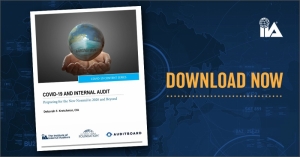عرض العناصر حسب علامة : الميزانية
الخميس, 26 أكتوبر 2023 11:18
رسالة دكتوراه: أثر الإدارة الإلكترونية في تنمية الموارد البشرية بالجامعات المصرية
رسالة دكتوراه عن الإدارة الإلكترونية وهدف الدراسة التعرف على درجة تأثير الإدارة الإلكترونية في تنمية الموارد البشرية بالجامعات المصرية من وجهة نظر الإداريين والموظفين.
معلومات إضافية
- البلد مصر
نشر في
رسائل ماجستير و دكتوراة
الإثنين, 20 يونيو 2022 11:25
التخطيط الاستراتيجي للسوق
معلومات إضافية
-
المحتوى بالإنجليزية
Market Planning
The process of organizing a company's marketing goals and gathering strategies and tactics to achieve them
What is Market Planning?
Market planning is the process of organizing and defining the marketing aims of a company and gathering strategies and tactics to achieve them. A solid marketing plan should consist of the company’s value proposition, information regarding its target market or customers, a comparative positioning of its competitors in the market, promotion strategies, distribution channels, and budget allocated for the plan. All relevant teams in the organization should refer to the marketing plan.
Market Planning for Small Businesses
Over the last few decades, more individuals have been starting a journey as a small business entrepreneur. Unfortunately, many fail to reflect on their marketing strategy and plan. Like other things in a project, marketing the organization is an essential decision that starts with a plan every time. In order to get noticed in the market with a unique and consistent promotional strategy, becoming knowledgeable about market planning and its facets is crucial.
Stages of Market Planning
The first stage of market planning involves sales projections and evaluations of past promotional activities to assess their effectiveness. The process of analyzing a product enables a company to identify which areas of the plan should carry a heavier focus or which areas should be adjusted. The analysis not only involves evaluating the company’s competitive position in its respective market but also considering how to implement new strategies for its business goals.
The second stage is to organize marketing objectives and strategies. It is crucial here to establish the relationships between the proposed activities so the plan can be carried out efficiently.
Top Market Planning Concepts
Although there are a number of marketing planning concepts to be considered, the following are a few important aspects that should be included:
Market Segmentation and Target Markets
Knowing who makes up the market the product or service plays in is crucial, yet the importance of this aspect is often overlooked. Market segmentation involves assessing the whole population that could be potential customers of your product and then segmenting them based on varying criteria. Some examples of aspects to filter for are purchase behavior, psychographics, age, and average income.
After the market has been segmented, the company must choose the group that it believes its product can best serve and is within the budget to advertise to. This segment then forms your target market. It is generally recommended for businesses to have one target market and then a few secondary ones if they see fit.
To illustrate, a company that sells colored contacts may have a primary target market of makeup artists in the film and theater industry. However, they may find that there is significant revenue to be found in entering more mainstream channels and marketing to women in their twenties who wish to experiment with new eye colors on special occasions. They would then spend the majority of their resources marketing to their primary target market, but also allocate some marketing budget to the latter segment for additional revenue.
The main reason why market segmentation and targeting is important is that a company should always be focusing its resources on the most profitable group of customers, so knowing which group that is, is a prerequisite.
Budget
Budgeting may be the most important term in marketing planning when it comes to execution. Often, in order to secure funds from top management or banks, sufficient proof of your advertising plan’s success is needed. It requires accurate forecasting of returns generated by individual advertising expenditures. It is important that returns are not overestimated to avoid spending too much and running out of money early on.
Marketing Mix
The marketing mix is a combination of elements that influence customers to purchase a product. The marketing mix includes four main factors – Product, Price, Place, and Promotion. Product refers to either the tangible good that your business offers or the intangible good, referring to services. Key decisions made under this umbrella are branding, product design, package and labeling details, warranties, and more.
Price can quite simply be the quantitative price the company’s customers must pay to acquire its product. However, thorough marketing plans will also consider other sacrifices a customer must make, such as travel time, shipping costs, or research time before they find the product. Customer perceived value is also a key consideration when it comes to price. Key decisions under this umbrella include price-setting, pricing strategies, discounts, accepted payment methods, and more.
Place refers to where customers can contact the business and purchase its products. Providing convenience and access to the company’s customers is the goal. Key decisions under this umbrella include distribution, channels, partnerships, locations, transportation, and logistics.
Promotion covers all the marketing communications the company undertakes to make its product known and shape the customers’ image of its product. Key decisions here involve promotional mix, message content, message frequency, media strategies, and more.
Customer Relationship Management (CRM)
Customer relationship management (CRM) is a key factor in maintaining loyalty after a company has achieved a sustainable number of customers. There are numerous software solutions on the market to handle CRM for a company. For small businesses, however, keeping such activities in-house may be recommended to keep the company lean. Things such as offering warranties and return policies can help keep customers satisfied and let them know that the company cares about their use of the product post-purchase.
Key Takeaways
Market planning is a constructive process that facilitates careful consideration of a company’s marketing objectives and product mix so that resources allocated to advertising plans and branding yield optimal returns. While some facets may be unique for each business, key concepts such as market segmentation, target markets, marketing mix, budgeting, and CRM, are applicable in all cases.
نشر في
موضوعات متنوعة
موسومة تحت
الأربعاء, 08 يونيو 2022 13:12
مقالات .. ميزانية ضبط الإنفاق والاستدامة المالية
كاتب المقالة : طلعت بن زكي حافظ
نشر في
محاسبة و مراجعة
موسومة تحت
الخميس, 16 سبتمبر 2021 08:09
الميزانية والتنبؤ
تعتبر نهاية العام وقتاً مثالياً لبدء عملية إعداد الميزانية للعام المقبل بحيث يتم تأمين خططك عند بدء العام الجديد، فالميزانية والتنبؤ مهمان لأسباب عديدة
نشر في
موضوعات متنوعة
موسومة تحت
الأربعاء, 21 سبتمبر 2022 12:11
استشارات الميزانية للمحاسبين لعام 2021
معلومات إضافية
-
المحتوى بالإنجليزية
Budgeting advice for accountants for 2021
By Helen Braswell Kakouris
Given the turbulence of the past year, agility should be at the forefront of our minds when building a budget and strategy for 2021. Business owners need to be prepared to navigate the continued uncertainty. The ability to pivot in an unpredictable business environment will be essential this year, and with revenue assumptions changed across all industries by the events of 2020, a fresh approach is needed.
The industry can look to PwC’s advice: “Protect growth and profitability through actions such as scenario planning [and] more frequent financial modeling exercises to improve resiliency.” It is time to shift the approach to the new environment, with small and medium-sized companies now requiring quarterly or monthly strategic advice. This will transform the way that the industry offers its services, with strategy and consulting services offered as a monthly retainer, pushing away from the traditional per hour format. With the software advances of recent years, switching accounting pricing models can be a near seamless transition.
Historically, only large enterprise companies had the means to invest in quality software to enhance their decision-making capabilities for strategy and budgeting. Small and medium-sized enterprises in contrast often relied on a semi-annual conversation with their CPA. In the last few years, countless new software products have come to the market geared toward SMEs. There has never been a more important time for accountants to look ahead and prepare themselves for strategy-based budgeting conversations rather than historical budgeting.
Managing Your Firm in a Post-COVID World
Think beyond the pandemic with exclusive resources to help you build a thriving virtual practice.
SPONSORED BY INTUIT ACCOUNTANTS
First, let’s run through the ground rules for forming a budget, before looking more specifically at how the 2021 budget should differ.
The basics
When forming a budget, it has to align with the company’s vision and goals. Are the vision and goals specific, measurable, achievable, time-based and relevant? This is the S.M.A.R.T. acronym from a paper published by George Doron almost four decades ago. A well-formulated goal could be something like, “I want to increase company sales by 30 percent by the end of 2021.”
Understand the executive team: What is their management style? Are they aggressive or conservative? That will ultimately decide whether they are willing to absorb losses in order to achieve their growth goals and thus will shape the budget and give a clear picture on raising or securing necessary capital. Understanding management style and the decision-making approach is really a personal question for every business owner, which must be reflected on individually.
Get specific with the industry. Think about the industry and economic factors that will affect the company’s operations in the coming year. Naturally the whole business world has been radically changed by the events of 2020, but its effects will be distinct across different industries.
Consider the company’s overall revenue goal. Is it hoping to offer new products or services? If management wants to increase sales, perhaps it needs new sales personnel, and the budgeted payroll expense will likely depend on their level of experience.
Consider the company’s costs: Do they need greater inventory to satisfy orders? What is the staffing cost required for increased sales, or even the cost of outsourcing some tasks? Also, try to predict upcoming costs, like any equipment purchases that could be beneficial.
The last ground rule for forming a budget is to choose a budget framework — a historical budget or a zero-based budget. In normal times, a hybrid budget would be recommended, with historical data as a base to develop revenue and payroll, and all other expenses using the zeroed-out approach. However, the 2021 approach to budgeting is going to challenge the traditional ways.
The 2021 approach
A new business environment demands a fresh approach to budgeting. Zero-based budgeting should be the preferred framework, prioritized over the historical data approach. In fact, McKinsey even echoed this point in a recent study.
The historical data approach could be misleading this year. 2020 may have been a statistically anomalous year, meaning the data produced in the most recent year, which would usually carry the most weight, is difficult to utilize.
In building a budget, assumptions are one of the most important components because those will drive total annual budgeted revenue and expenses, and thus shape the entire report. For 2021, those assumptions are even more important and should be afforded greater scrutiny. Geographical and seasonal variables also require particular attention. With greater market fluctuations expected amid an unpredictable political and economic environment, accountants must make themselves available for up-to-the-minute advice. Businesses will need them to be on hand to review and adjust budgets throughout the year, to help adapt to environmental changes as they come.
The accountants who build that trust are likely to have a profitable 2021 and beyond. They should consider changing their own pricing model to a monthly retainer, rather than a by-the-hour model, so their company involvement can be more consistent and available for pivoting throughout the year.
In addition, the increase in automation is compounding the need for the new pricing model. Much of the traditional bread and butter work of accountants is being automated, meaning the professional role is becoming increasingly advisory, with trust key to the relationship. Accountants should realize where the industry is headed, and get ahead of the game.
Those professionals should consider acting as a strategic partner to businesses rather than a professional who gets called in for projects or regulatory requirements. While the ground rules remain an important point of reference, the 2021 budget demands the industry adapt to an unfamiliar economic environment. Being in such unchartered waters heightens the importance of the zero-based budgeting framework and requires deep thought on every single assumption included in the budget.
Accountants will be trusted with a weighty responsibility as their clients navigate and profit from an unpredictable 2021. Those who are on hand to course a way through choppy waters are sure to develop great relationships with their clients and gain a solid reputation in the industry.
نشر في
موضوعات متنوعة
الثلاثاء, 25 أغسطس 2020 15:14
التمويل خارج الميزانية OFF - BALANCE - SHEET FINANCING
يمثل التمويل خارج الميزانية محاولة لإقتراض أموال بطريقة لا ينتج عنها تسجيل تعهدات على الشركة . وهي قضية ذات أهمية بالغة للمحاسبين ( وكذلك للإدارة ) . فكما أشار أحد الكتاب في سخرية فإن المحركات الأساسية للنفس البشرية معدودة وهي : الحصول على الطعام الكافي ، وإيجاد المأوى المناسب ، وإخفاء الديون خارج الميزانية .
نشر في
محاسبة و مراجعة
الأربعاء, 22 يوليو 2020 13:34
الميزانية أهميتها و القصور الخاصة بها
نشر في
محاسبة و مراجعة
الإثنين, 26 سبتمبر 2022 11:40
فيروس كورونا والتدقيق الداخلي
نشر في
محاسبة و مراجعة








